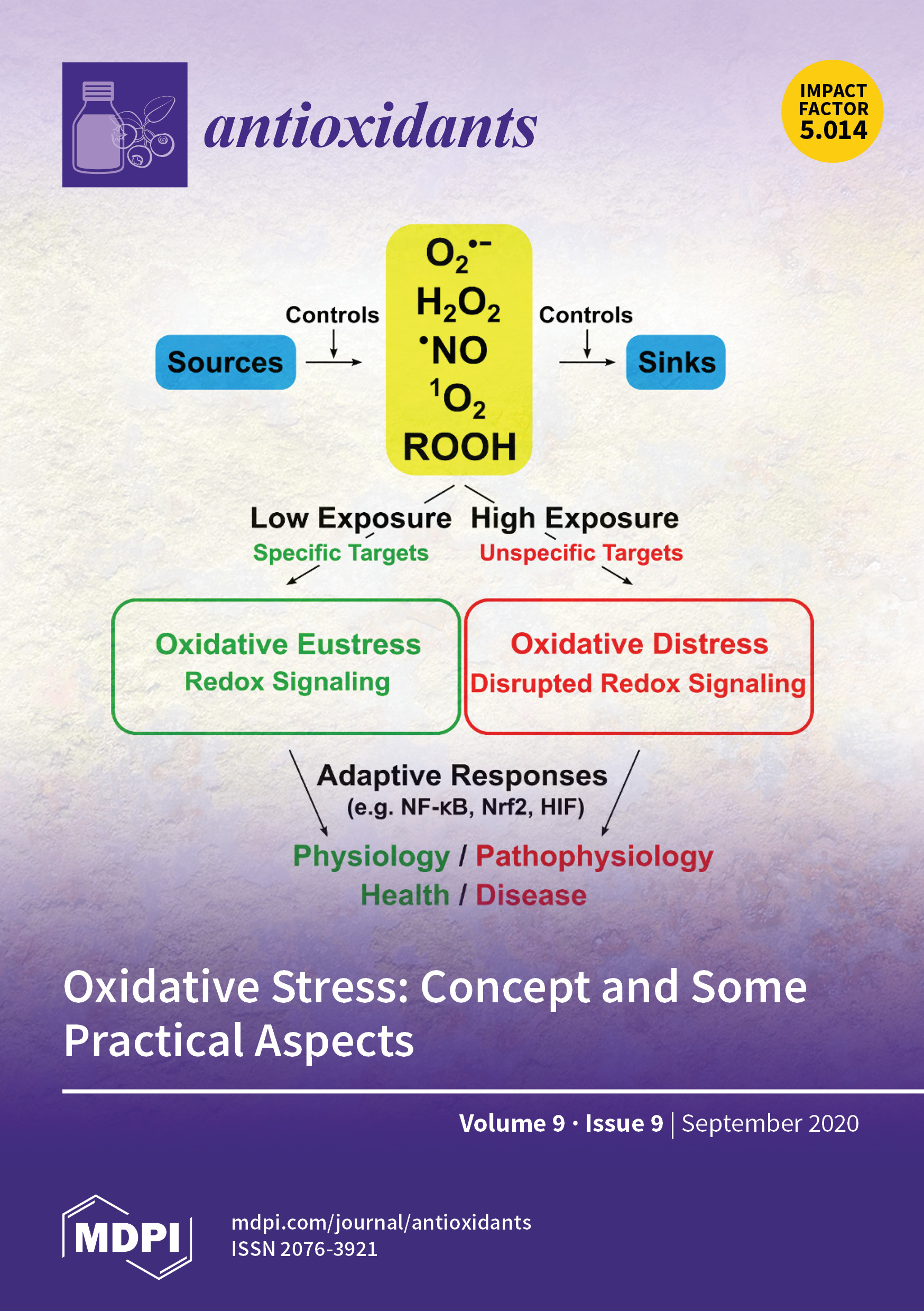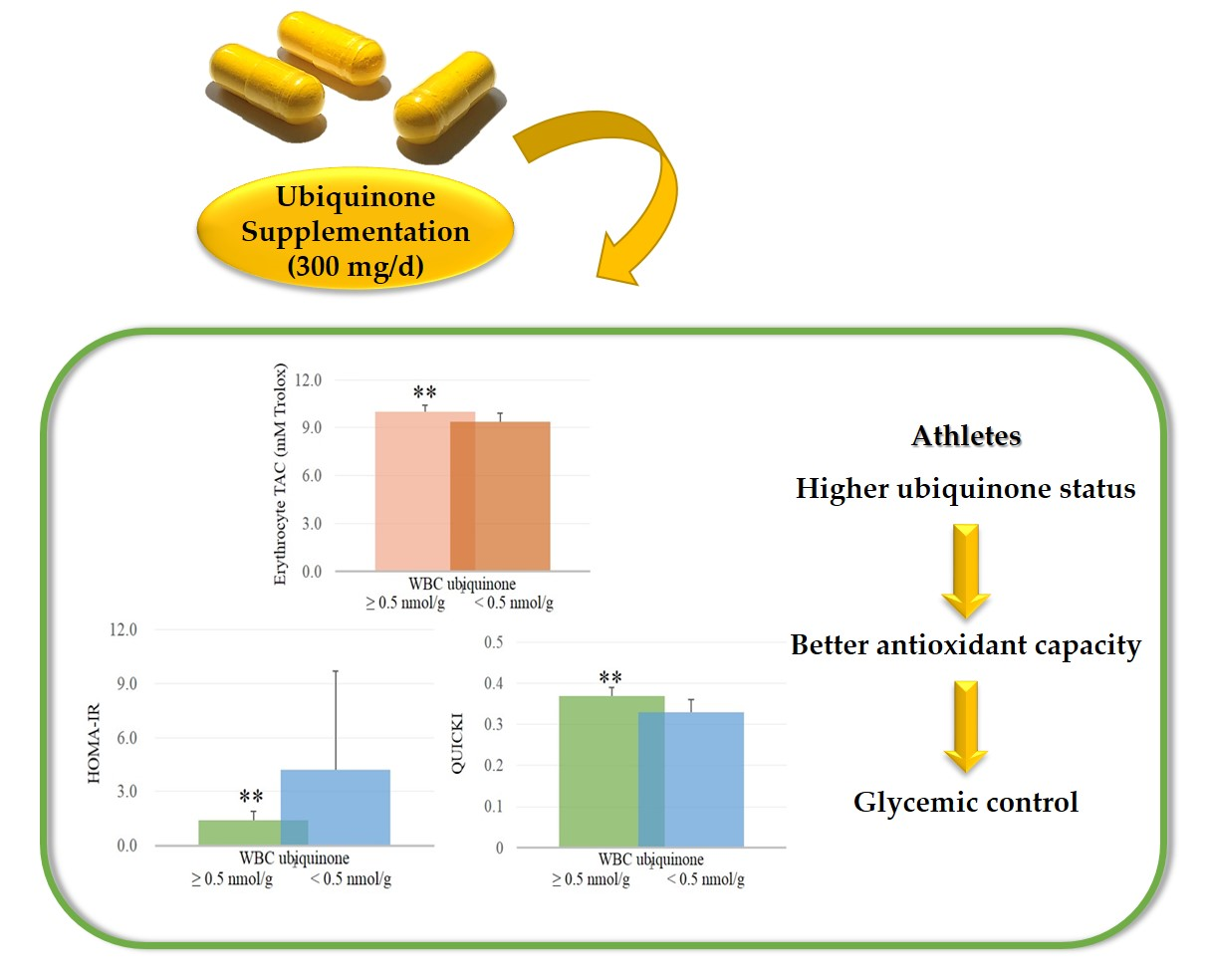Featured Scientist

Author published in"Antioxidants"affiliate to
Department of Physical Education,
Fu Jen Catholic University, New Taipei City, Taiwan
Article published in
"Antioxidants" 2020, 9(9), 823
Ubiquinone Supplementation with 300 mg on Glycemic Control and Antioxidant Status in Athletes: A Randomized, Double-Blinded, Placebo-Controlled Trial
The aim of this study is to investigate the glycemic profile, oxidative stress, and antioxidant capacity in athletes after 12 weeks of ubiquinone supplementation. It was a double-blinded, randomized, parallel, placebo-controlled study. Thirty-one well-trained college athletes were randomly assigned to ubiquinone (300 mg/d, n = 17) or placebo group (n = 14). The glycemic profile [fasting glucose, glycated hemoglobin (HbA1c), homeostatic model assessment-insulin resistance (HOMA-IR), quantitative insulin sensitivity check index (QUICKI)], plasma and erythrocyte malondialdehyde (MDA), total antioxidant capacity (TAC), and ubiquinone status were measured. After supplementation, the plasma ubiquinone concentration was significantly increased (p < 0.05) and the level of erythrocyte MDA was significantly lower in the ubiquinone group than in the placebo group (p < 0.01). There was a significant correlation between white blood cell (WBC) ubiquinone and glycemic parameters [HbA1c, r = −0.46, p < 0.05; HOMA-IR, r = −0.67, p < 0.01; QUICKI, r = 0.67, p < 0.01]. In addition, athletes with higher WBC ubiquinone level (≥0.5 nmol/g) showed higher erythrocyte TAC and QUICKI and lower HOMA-IR. In conclusion, we demonstrated that athletes may show a better antioxidant capacity with higher ubiquinone status after 12 weeks of supplementation, which may further improve glycemic control. [Full article]

Keywords: ubiquinone supplementation; athletes; glycaemia; antioxidant; sport nutrition
28 views